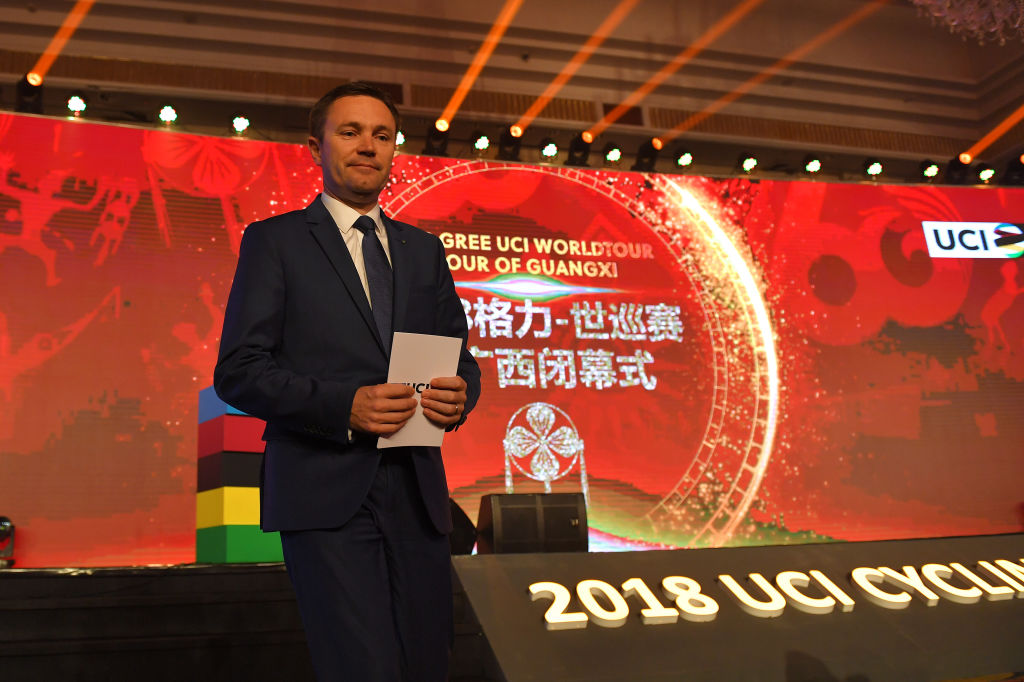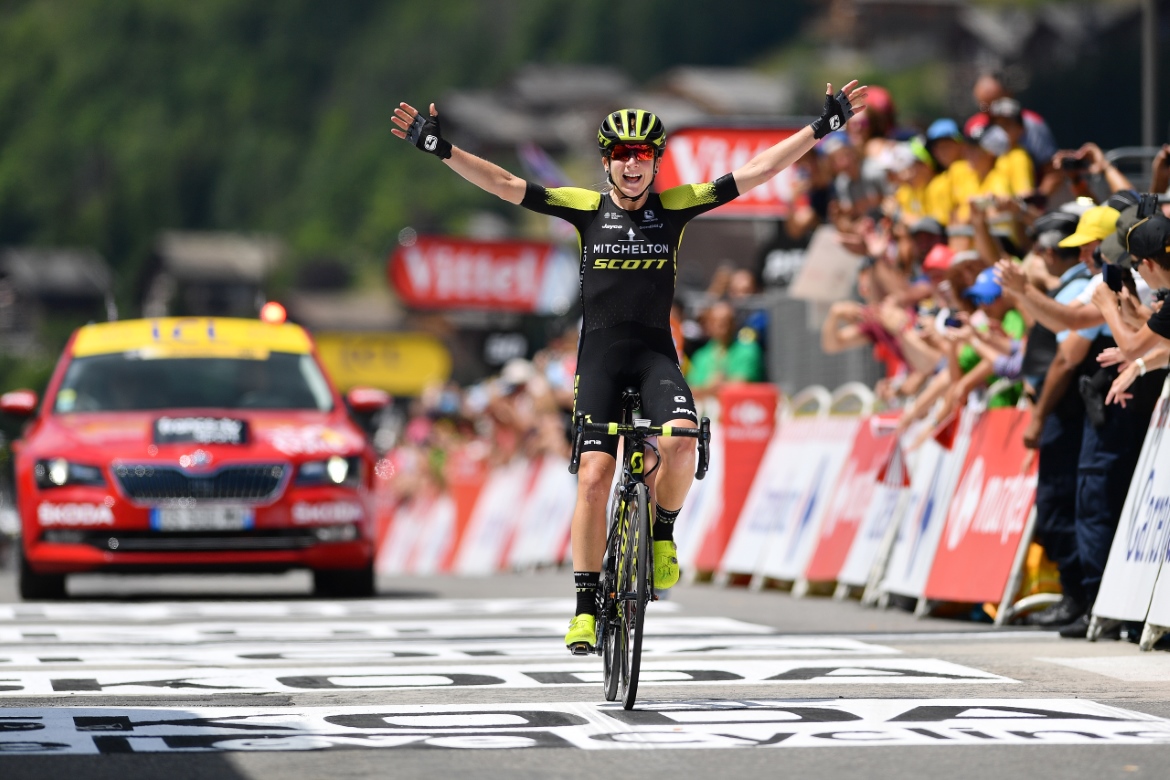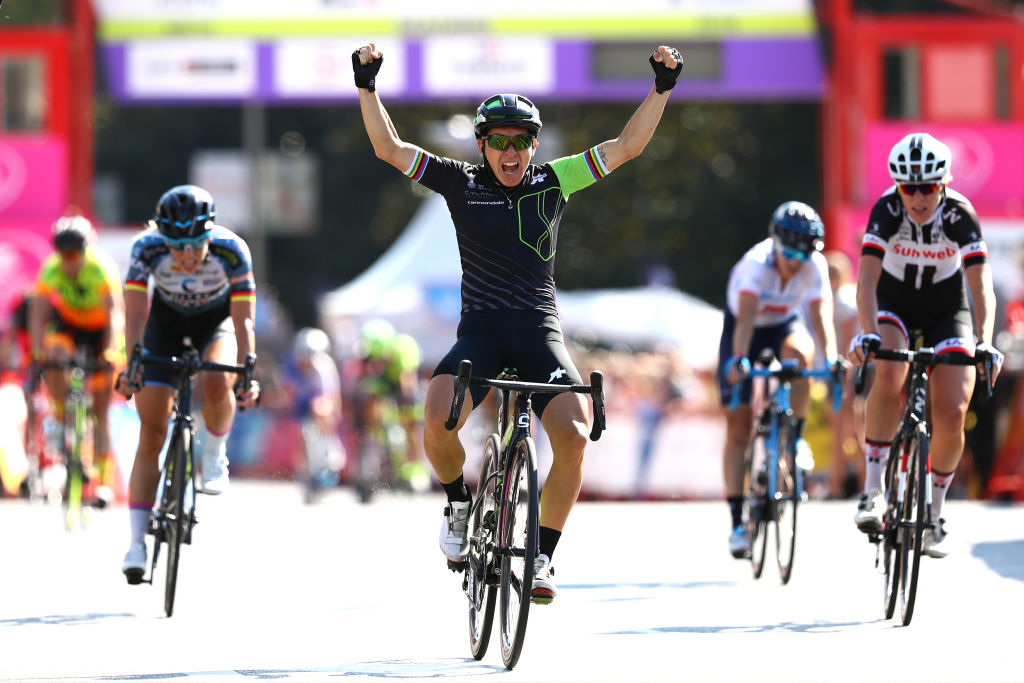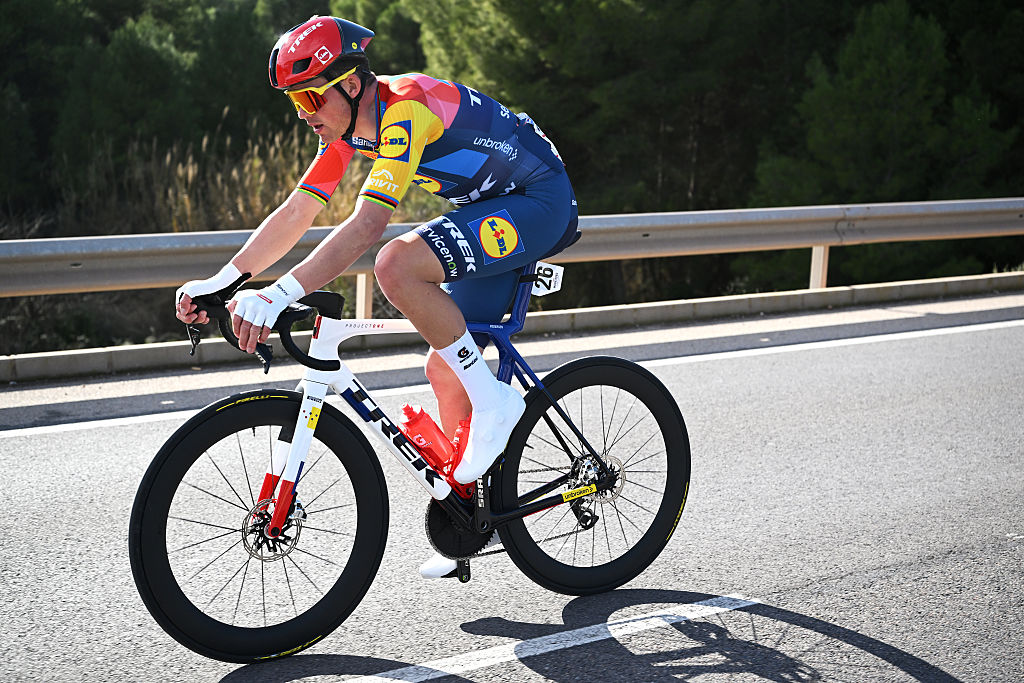Lappartient pushes ASO to increase TV coverage of women's racing
Team managers concerned women's reforms are moving too quickly
The latest race content, interviews, features, reviews and expert buying guides, direct to your inbox!
You are now subscribed
Your newsletter sign-up was successful





UCI president David Lappartient has asked Tour de France organisers ASO to work harder to broadcast their women's races on television, as well as stating his ambition to get more women’s racing as a whole on TV. His comments come as several leading women's team managers expressed their concerns about the ability to raise the finances required to adhere to the new minimum wage regulations set to come in for the 2020 season.
As well as their vast network of men's races, ASO run a number of high-profile women’s races, including Flèche Wallonne, Liège-Bastogne-Liège, La Course and the Madrid Challenge, as well as working alongside Welcome to Yorkshire for the Women’s Tour de Yorkshire. While La Course and the Tour de Yorkshire receive extensive live broadcast (though Yorkshire is restricted to British television), the Ardennes races and Madrid receive minimal coverage on television.
Lappartient has previously tried to convince ASO to organise a women's Tour de France but the sport's most powerful organiser has done little to boost women's sport.
"I addressed the ASO, the organiser of the Flèche Wallonne, and told them that they do not comply with the requirements for WorldTour races. I have asked them to make a serious effort to get their course on TV," Lappartient told Dutch broadcaster NOS.
"Our ambition is to get as many female races as possible live on TV, but it must of course also be produced, and that costs money. Maybe, we could better negotiate the broadcasting of all of the women’s races. Now that happens here and there, but there are also races that are not live on TV. That are not shown at all."
A number of team managers spoke to NOS, criticising the current financial model for women's cycling and stating their worries that they might not be able to raise the increased investment required in the coming years. A lack of television coverage was one of their primary concerns because it makes it harder to bring in major sponsors.
"It's a good thing that a dot is put on the horizon, and if you do nothing, nothing will change, but the earnings model is not right,” WaowDeals team manager Eric van den Boom told NOS.
The latest race content, interviews, features, reviews and expert buying guides, direct to your inbox!
"The plans all sound fantastic, but 60 or 70 per cent of the peloton cannot comply, you cannot plan and make unlimited rules if it only costs money for the teams and the sponsors."
From 2020, there will be a new two-tier team system - Women's WorldTeams and Continental Teams - the top tier will need to pay riders a minimum salary. It will start at €15,000 and raise to €27,500 over the next two seasons. Only five teams will make up the top tier, based on applications, in the first season but the UCI hopes to up that to 10 in the second and 15 in the third.
The Continental Teams will not be required to pay riders a minimum salary but will be able to compete on the Women's WorldTour through invitations to events, similar to the current process.
Boels-Dolmans team manager Danny Stam is worried that the changes were moving ‘too fast’ for teams to keep up. Stam’s squad have been the top-ranked team in the Women’s WorldTour since its inception in 2016.
"They go a few steps too fast," Stam told NOS. "The UCI builds a roof, but forget to build the walls.
"I read reports that women's teams should have a budget of three or four million in a few years, while no money is flowing in.
"You should not kill half of the peloton in this way, it is not good for cycling."
Informed of those concerns, Lappartient acknowledges that it needed to be a gradual process but stood by his reforms.
"When you start such a reform, you know that you are going to run into problems," said Lappartient.
"For some, it is not fast enough. But, we should not exaggerate, you cannot change everything in one day. It must be step by step. We are actually working on building those walls. That is why we will start in 2020 with five teams that have to meet the requirements. It is not an obligation for all teams, only the teams who want to be part of it must comply with the rules.”

